The Khohanotz: Mijink, or Armenian Sweet Bread
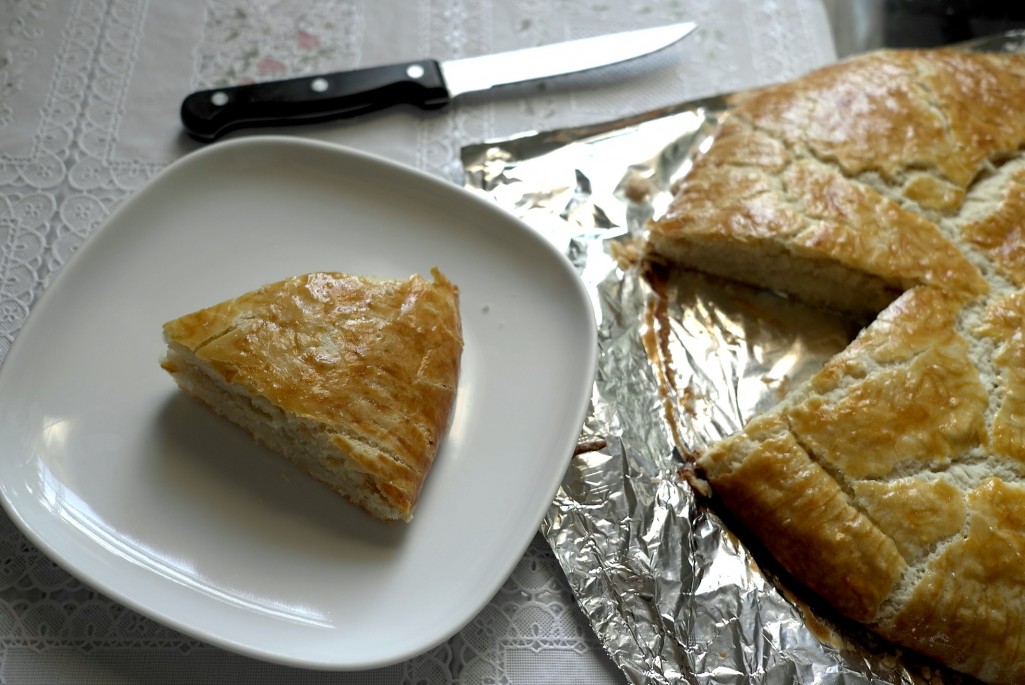
When it’s time to cut the Mijink bread, all family members must be present. They must stand around, in anxious anticipation watching the knife glide across the top of the pastry in the form of a cross before being cut up and divided, each piece with the potential to house a dime that was covered in foil and put in the dough before baking. If you receive it, you’re bound to have a good and fruitful year. If not, better luck next time.
It’s an age old tradition celebrated by Armenians every Easter. Mijink, or Median Day of Lent is celebrated in honor of the first half of Lent that has passed. In the Armenian Apostolic Church, where it is custom to abstain from any and all animal products for the entire 40 day duration until Easter, Mijink is a welcome treat.
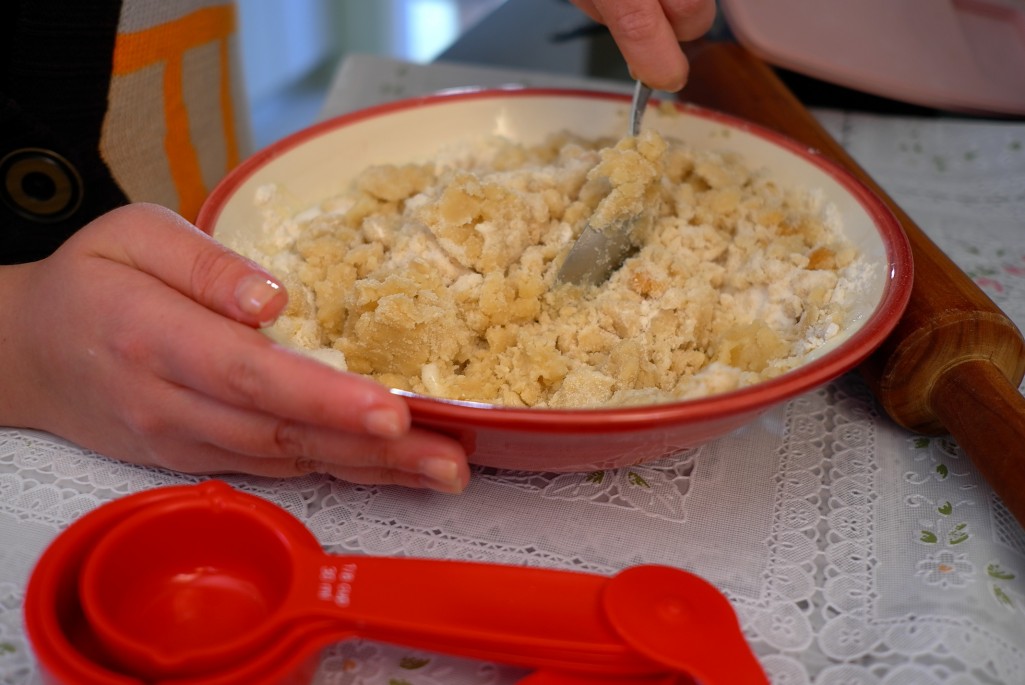
This year, we decided to make our own instead of buying ready made pastry. It was a rewarding challenge that made us wonder, among other things, how anyone managed to knead dough for so long before the invention of the mixer?
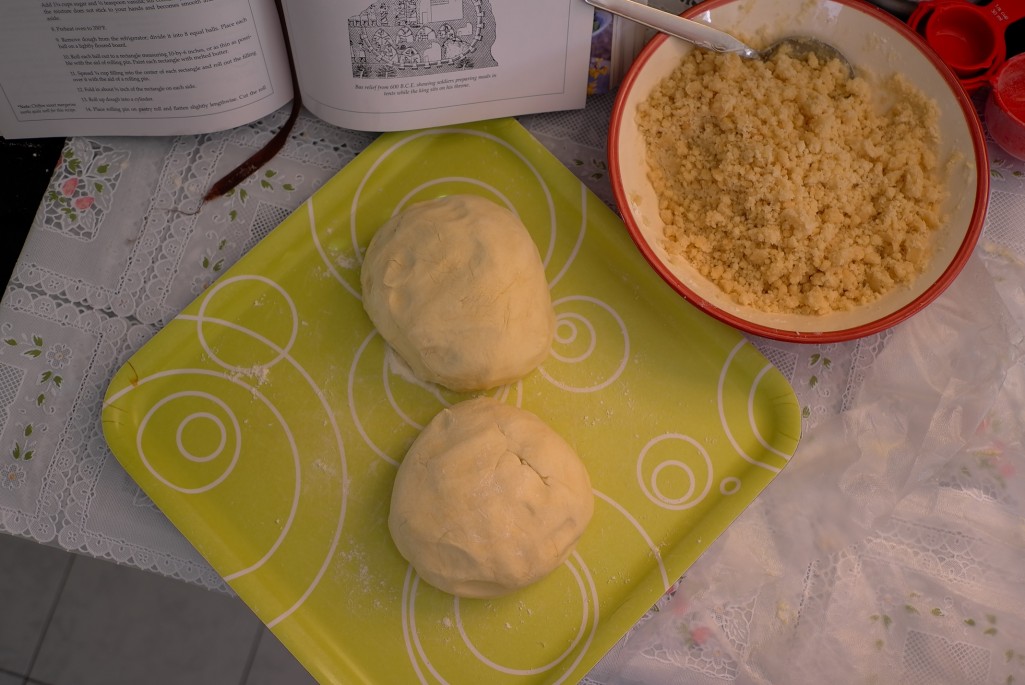
The recipe, adapted from the staple Persian cookbook, “New Food of Life” by Najmieh Batmanglij, is mostly the same for other Armenian treats known as “Gata,” as well as the Azerbaijani pastry known as “Kete” or “Ketah.”
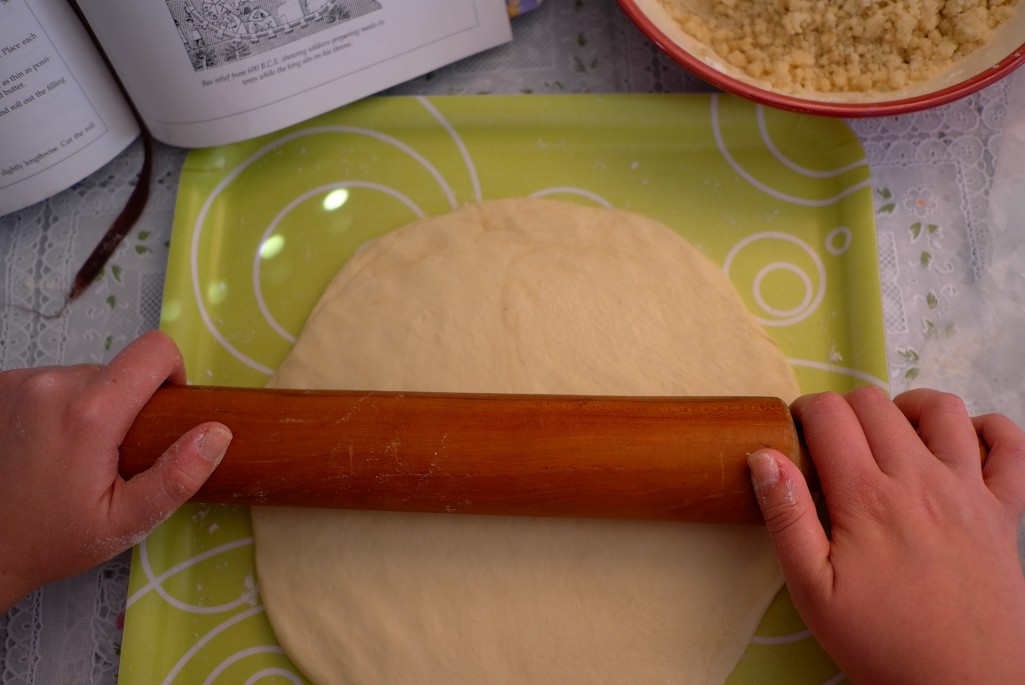
Perhaps what makes Mijink so delicious is the soft, melt-in-your-mouth filling, comprised of butter, flour, sugar and a hint of vanilla. And what makes it so special, is that little coin you hope to receive.
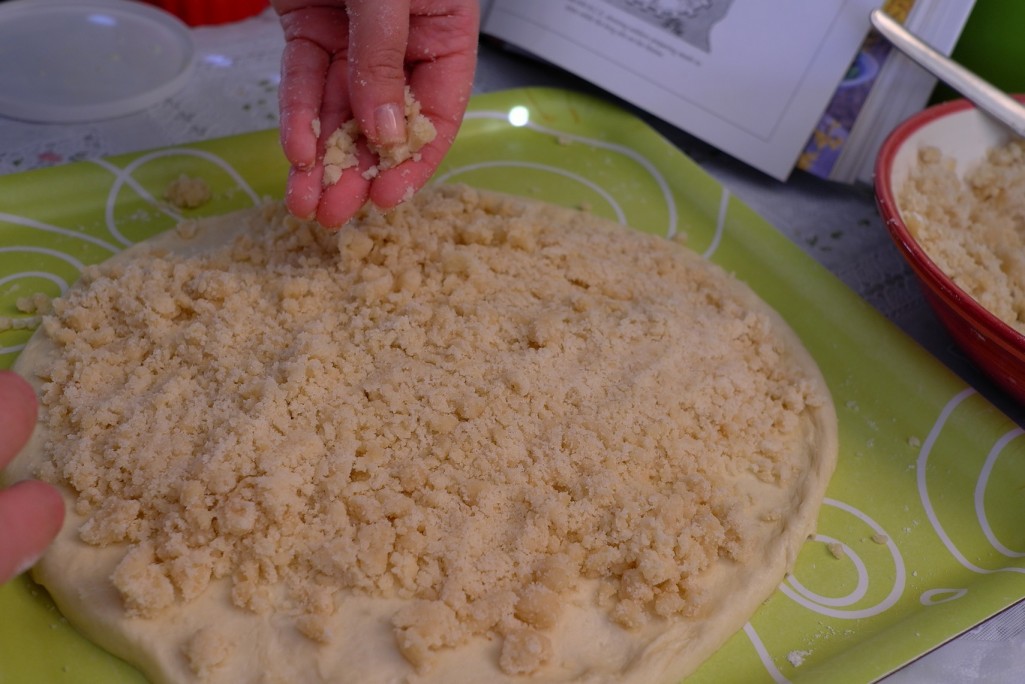
When covered, the inside filling stays warm and moist, and goes down delicious with a piping hot cup of tea.
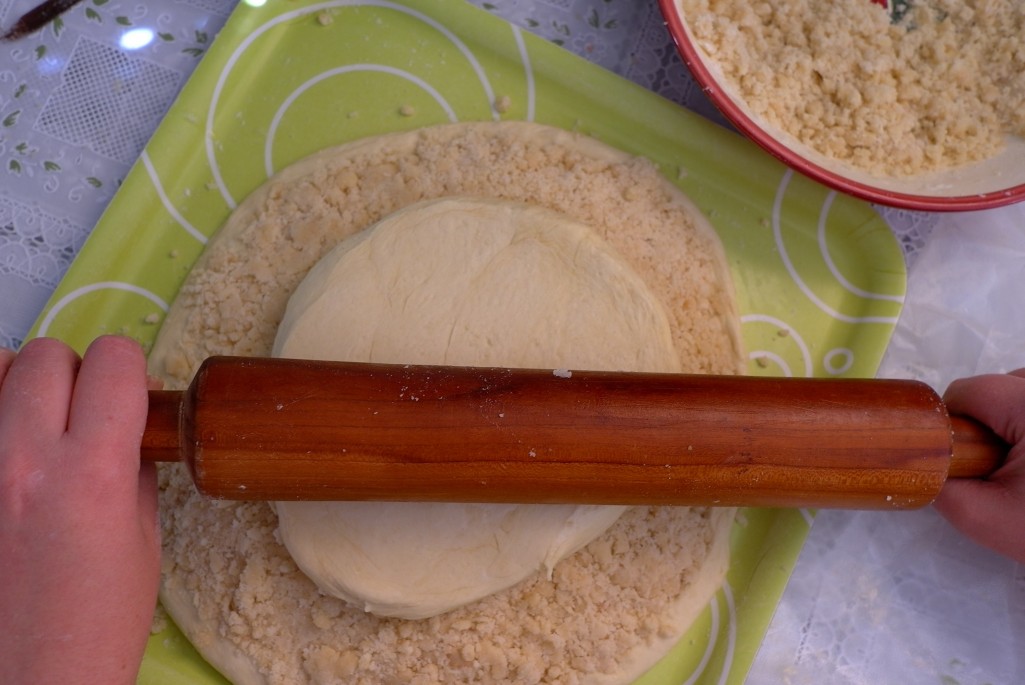
What gives Mijink is beautiful golden brown facade is an egg wash that is generously spread all over before baking. It is also customary to give your cake a design. Here we used mini cookie cutters and the back of a fork, though we’ll be careful to indent harder next time, as well as stretch our dough as much as possible, as the design sometimes manages to disappear while baking.
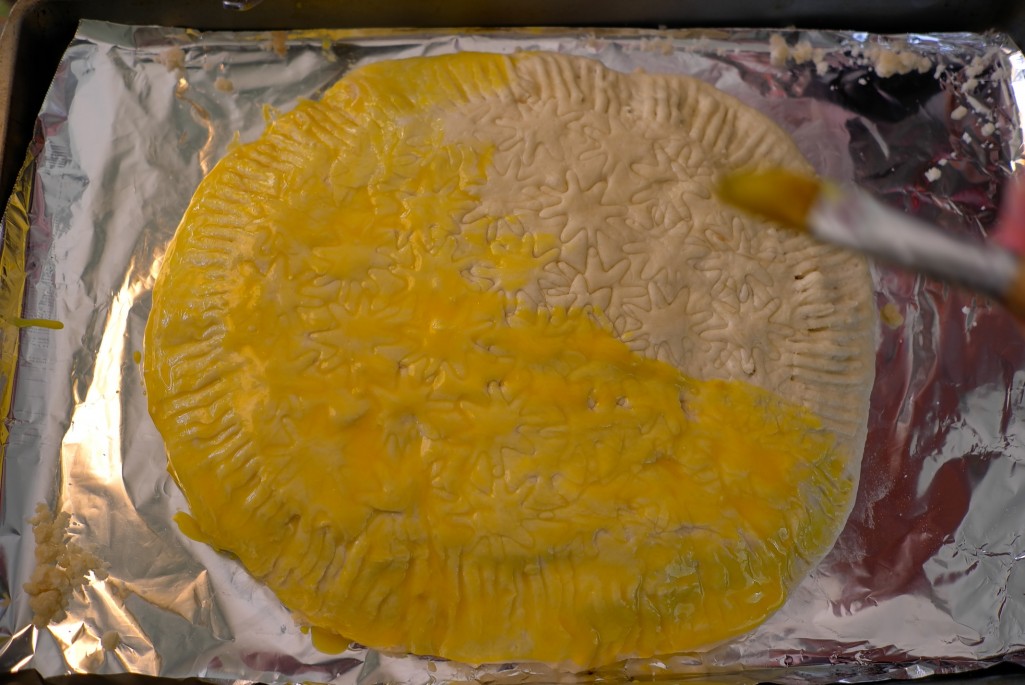
The best time, in our opinion, to devour some Mijink bread is a few minutes after it makes its glorious debut from the oven. Oh, and don’t forget the tea.

Mijink Pastry
1 packet of dry yeast
1 cup sour cream
1 cup unsalted butter
1 egg
1 tbsp vegetable oil
1 tbsp white distilled vinegar
3 cups all purpose flour, sifted
Filling
1 cup melted butter or margaine
2 cups all purpose flour
1 1/4 cups sugar
1/2 tspn of vanilla
Glaze
2 eggs yolks, beaten
• Combine yeast with sour cream in a bowl, setting aside for 10 minutes
• Add butter, mixing well
• Add egg, oil and vinegar, mixing well
• Add the sifted flour, one cup at a time, while continuing to mix.
• Knead dough until it’s smooth and firm, and doesn’t stick to your hands. [If you’ve got the hand power and muscle, by all means use them. If you’re a mere mortal like us, best to keep the contents in your mixer and change the attachment to a hook, which will seamlessly transform your dough in about 20 minutes to what it is meant to look like.
• Prepare a floured surface and transfer your dough, which should at this point not be sticking to your hands, to the surface shaping it into two balls. The amount of dough this recipe provides can easily make two Mijink breads, so feel free to divide it four times. Wrap the dough and leave in the fridge overnight, or if you don’t have that much time to spare, at least for two to three hours.
• In the meantime, turn on your oven to 350 degrees F and prepare the filling by mixing 1 cup of melted butter with 2 cups of flour, then adding the sugar and vanilla. Stir constantly, until the mixture does not stick your hands and becomes smooth and even.
• When your dough is ready to be removed, prepare another lightly floured surface for it and roll each ball out to as thin as possible, in any shape you like.
• Somewhere between the filling and dough, decide where you will be inserting your coin, usually a dime or something similar. Wrap it in foil and go to town.
• Spread the filling onto one rolled out dough. [Since the dough can pretty heavy, it might be a good idea to transfer the first dough, once it is rolled, onto the surface and/or flat pan you plan to bake it in.]
• Carefully put the other dough on top, taking care to seal the sides, either by folding/tucking under or using the back of a fork for sealing, creating a design.
• Now you can get creative – use mini cookie cutters or simple kitchen tools to imprint desired design on your Mijink bread.
• Brush the surface with egg wash.
• Bake the bread for around 20 minutes, or until golden brown
All photos © ianyanmag.com




